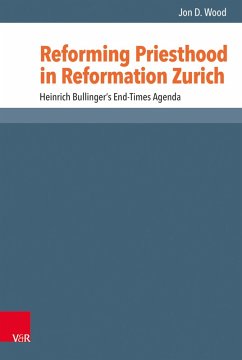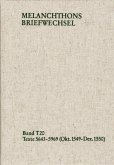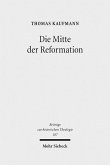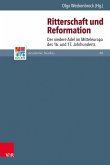The dramatic task of re-imagining clerical identity proved crucial to the Renaissance and Reformation. Jon Wood brings new light to ways in which that discussion animated reconfigurations of church, state, and early modern populace. End-Times considerations of Christian religion had played a part in upheavals throughout the medieval period, but the Reformation era mobilized that tradition with some new possibilities for understanding institutional leadership. Perceiving dangers of an overweening institution on the one hand and anarchic "priesthood of all believers" on the other hand, early Protestants defended legitimacy of ordained ministry in careful coordination with the state. The early Reformation in Zurich emphatically disestablished traditional priesthood in favour of a state-supported "prophethood" of exegetical-linguistic expertise. The author shows that Heinrich Bullinger's End-Times worldview led him to reclaim for Protestant Zurich a notion of specifically clerical "priesthood," albeit neither in terms of statist bureaucracy nor in terms of the traditional sacramental character that his precursor (Huldrych Zwingli) had dismantled. Clerical priesthood was an extraordinarily fraught subject in the sixteenth century, especially in the Swiss Confederation. Heinrich Bullinger's private manuscripts helpfully supplement his more circumscribed published works on this subject. The argument about reclaiming a modified institutional priesthood of Protestantism also prompts re-assessment of broader Reformation history in areas of church-state coordination and in major theological concepts of "covenant" and "justification" that defined religious/confessional distinctions of that era.
Dieser Download kann aus rechtlichen Gründen nur mit Rechnungsadresse in A, B, BG, CY, CZ, D, DK, EW, E, FIN, F, GR, H, IRL, I, LT, L, LR, M, NL, PL, P, R, S, SLO, SK ausgeliefert werden.









